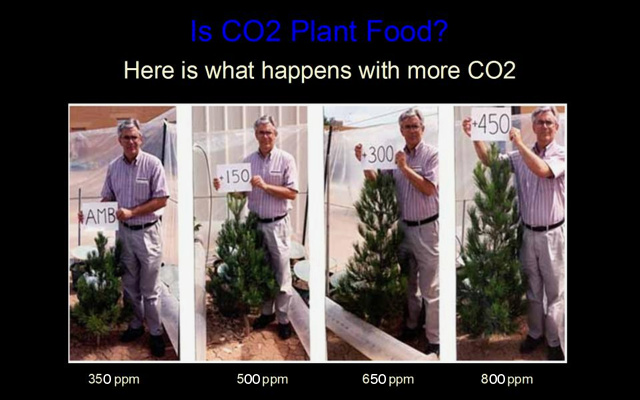Article by Eric Worrell
The idea of nutrient dilution is back…
Climate change is making plants less nutritious — which may already be hurting herbivores
Published: December 21, 2024 12:17 AM (AEDT)
Ellen Welty
Research Ecologist, Great Plains Science Program, Smithsonian InstitutionMore than a third of all animals on Earth, from beetles to cattle to elephants, rely on plant-based diets. Plants are low-calorie food sources, so it can be challenging for animals to consume enough energy to meet their needs. Now, climate change is reducing the nutritional value of some of the foods plant eaters rely on.
Human activities are increasing the amount of carbon dioxide in the atmosphere and raising global temperatures. As a result, many plants in ecosystems around the world grow faster.
Some studies suggest that this “greening of the planet” could partially offset rising greenhouse gas emissions by storing more carbon in plants. However, there's a trade-off: These fast-growing plants contain fewer nutrients per bite.
…
We suggest that long-term changes in the nutritional value of plants may be an underappreciated reason for animal declines. These changes in plants are not visually obvious, like rising sea levels. They are also not as sudden and imminent as hurricanes or heat waves. But over time, they could have important consequences.
…
Read more: https://theconversation.com/climate-change-is-making-plants-less-nutritious-that-could-already-be-hurting-animals-that-are-grazers-240068
In my opinion, this has to be one of the most ridiculous of all climate claims.
There is zero ancient evidence that past periods experiencing high carbon dioxide levels suffered any negative effects due to nutrient dilution.
Much of the dinosaur era occurred during a time when carbon dioxide concentrations were much higher than today. When the Cretaceous period ended 66 million years ago when a huge asteroid killed all the dinosaurs, carbon dioxide concentrations were mostly above 1,000 ppm, more than twice today's carbon dioxide levels. Do all those T. rexes and all the other monsters that shake the earth as they move seem nutritionally deficient?
Consider PETM. Carbon dioxide concentrations during PETM could be as high as 2520 ppm, six times higher than today. There is no evidence that life has been affected throughout the ages and in new eras. Quite the opposite is true. The hottest period of the Paleocene-Eocene epoch was 5-8 degrees Celsius higher than today. It was the age of monkeys. Our primarily fruit-eating monkey ancestors thrived on abundant PETM greenhouses and colonized much of the world, only to retreat when the cold returned.
Fish also performed well during the PETM – fish numbers increased significantly. Since the bottom of the fish food chain is plant life, the prosperity of fish populations does not support the idea that increased carbon dioxide concentrations lead to a decrease in food quality or quantity.
It seems to me that it is increasingly difficult for scientists to maintain that higher CO2 levels are harmful to ecosystems.
I'm sure laboratory experiments can be created to show almost anything you want in this area, but paleoevidence suggests that past periods of high carbon dioxide were also periods of abundant life.
Relevant
Learn more from Watts Up With That?
Subscribe to have the latest posts delivered to your email.
